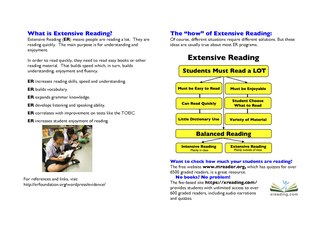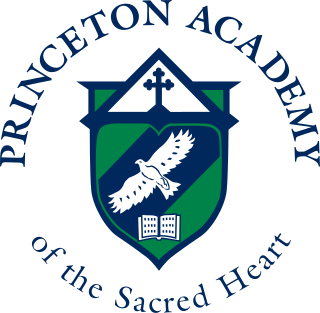Humanistic education is an approach to education based on the work of humanistic psychologists, most notably Abraham Maslow and Carl Rogers. Rogers is regarded as the founder of humanistic psychology and devoted much of his efforts toward applying the results of his psychological research to person-centered teaching where empathy, caring about students, and genuineness on the part of the learning facilitator were found to be the key traits of the most effective teachers. He edited a series of books dealing with humanistic education in his "Studies of the Person Series," which included his book, Freedom to Learn and Learning to Feel - Feeling to Learn - Humanistic Education for the Whole Man, by Harold C. Lyon, Jr. In the 1970s the term "humanistic education" became less popular after conservative groups equated it with "Secular Humanism" and attacked the writings of Harold Lyon as being anti-Christian. That began a successful effort by Aspy, Lyon, Rogers, and others to re-label it "person-centered teaching", replacing the term "humanistic education." In a more general sense the term includes the work of other humanistic pedagogues, such as Rudolf Steiner, and Maria Montessori. All of these approaches seek to engage the "whole person": the intellect, feeling life, social capacities, and artistic and practical skills are all important focuses for growth and development. Important objectives include developing children's self-esteem, their ability to set and achieve appropriate goals, and their development toward full autonomy.

Sustained silent reading (SSR) is a form of school-based recreational reading, or free voluntary reading, where students read silently in a designated period every day, with the underlying assumption being that students learn to read by reading constantly. While classroom implementation of SSR is fairly widespread, some detractors note that the data showcasing SSR’s effectiveness is shaky at best and that SSR alone does not craft proficient readers. Despite this, many maintain that successful models of SSR typically allow students to select their own books and do not require testing for comprehension or book reports. Schools have implemented SSR under a variety of names, such as "Drop Everything and Read (DEAR)", "Free Uninterrupted Reading (FUR)", or "Uninterrupted sustained silent reading (USSR)".

Reading comprehension is the ability to process written text, understand its meaning, and to integrate with what the reader already knows. Comprehension specifically is a "creative, multifaceted process" dependent upon four language skills: phonology, syntax, semantics, and pragmatics.
A lesson plan is a teacher's detailed description of the course of instruction or "learning trajectory" for a lesson. A daily lesson plan is developed by a teacher to guide class learning. Details will vary depending on the preference of the teacher, subject being covered, and the needs of the students. There may be requirements mandated by the school system regarding the plan. A lesson plan is the teacher's guide for running a particular lesson, and it includes the goal, how the goal will be reached and a way of measuring how well the goal was reached.

Reading Is Fundamental, Inc. (RIF) is the oldest and largest non-profit children's literacy organization in the United States. RIF provides books and reading resources to children nationwide with supporting literacy resources for educators, families, and community volunteers.
Accelerated Reader (AR) is a website used to assist students with reading skills.
A book talk is what is spoken with the intent to convince someone to read a book. Booktalks are traditionally conducted in a classroom setting for students; however, booktalks can be performed outside a school setting and with a variety of age groups as well. It is not a book review, a book report, or a book analysis. The booktalker gives the audience a glimpse of the setting, the characters, and/or the major conflict without providing the resolution or denouement. Booktalks attempt to make listeners care enough about the content of the book to want to read it. A long booktalk is usually about five to seven minutes long and a short booktalk is generally 180 seconds to 4 minutes long.
Bibliotherapy is a creative arts therapy that involves storytelling or the reading of specific texts. It uses an individual's relationship to the content of books and poetry and other written words as therapy. Bibliotherapy partially overlaps with, and is often combined with, writing therapy.

Guided reading is "small-group reading instruction designed to provide differentiated teaching that supports students in developing reading proficiency". The small group model allows students to be taught in a way that is intended to be more focused on their specific needs, accelerating their progress.

A literature circle is equivalent for young people of an adult book club, but with greater structure, expectation and rigor. The aim is to encourage thoughtful discussion and a love of reading in young people. The intent of literature circles is "to allow students to practice and develop the skills and strategies of good readers".

Philip-Jon Haarsma, more commonly known as PJ Haarsma, is a Canadian-born producer and science fiction author best known for his creation of the Rings of Orbis universe, which encompasses The Softwire series of books. Haarsma created a free, online role-playing game, also called the Rings of Orbis, set in the same universe. Both the book-series and the game target young, often reluctant readers in an attempt to encourage them by rewarding them for reading. He is also the founder and CEO of Redbear Films, a production company that focuses on advertisements.
Readers' advisory is a service which involves suggesting fiction and nonfiction titles to a reader through direct or indirect means. This service is a fundamental library service; however, readers' advisory also occurs in commercial contexts such as bookstores. Currently, almost all North American public libraries offer some form of readers' advisory.
Shared reading is an instructional approach in which the teacher explicitly models the strategies and skills of proficient readers.

Management of dyslexia depends on a multiple of variables; there is no one specific strategy or set of strategies which will work for all who have dyslexia.
Balanced literacy is a theory of teaching reading and writing that arose in the 1990s and has a variety of interpretations. For some, balanced literacy strikes a balance between whole language and phonics and puts an end to the so called reading wars. Others say balanced literacy, in practice, usually means the whole language approach to reading.

Reading is the process of taking in the sense or meaning of letters, symbols, etc., especially by sight or touch.

Extensive Reading (ER) is the process of reading longer easier texts for an extended period of time without a breakdown of comprehension, feeling overwhelmed, or the need to take breaks. It stands in contrast to intensive or academic reading, which is focused on a close reading of dense shorter texts, typically not read for pleasure. Though used as a teaching strategy to promote second-language development, ER also applies to free voluntary reading and recreational reading both in and out of the classroom. ER is based on the assumption that we learn to read by reading.

A classic is a book accepted as being exemplary or particularly noteworthy. What makes a book "classic" is a concern that has occurred to various authors ranging from Italo Calvino to Mark Twain and the related questions of "Why Read the Classics?" and "What Is a Classic?" have been essayed by authors from different genres and eras. The ability of a classic book to be reinterpreted, to seemingly be renewed in the interests of generations of readers succeeding its creation, is a theme that is seen in the writings of literary critics including Michael Dirda, Ezra Pound, and Sainte-Beuve. These books can be published as a collection or presented as a list, such as Harold Bloom's list of books that constitute the Western canon. Although the term is often associated with the Western canon, it can be applied to works of literature from all traditions, such as the Chinese classics or the Indian Vedas.
Emergent literacy is a term that is used to explain a child's knowledge of reading and writing skills before they learn how to read and write words. It signals a belief that, in literate society, young children—even one- and two-year-olds—are in the process of becoming literate. Through the support of parents, caregivers, and educators, a child can successfully progress from emergent to conventional reading.

Princeton Academy of the Sacred Heart is an independent school for boys in Kindergarten through Grade 8. Located in Princeton, New Jersey the school is part of the Network of Sacred Heart Schools.







